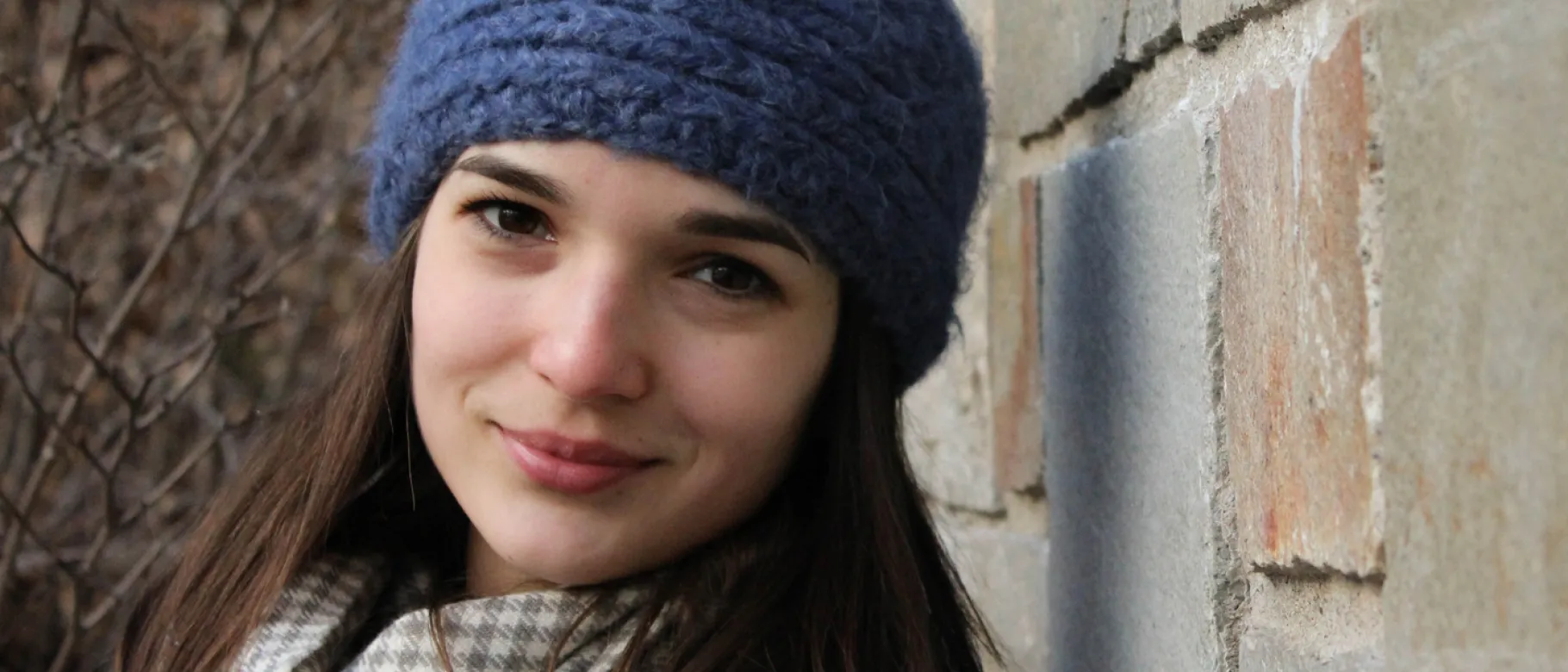Former Student Innovation Challenge winner Kaitlyn Schoen shares story of her invention on ‘MPBN’

Kaitlyn Schoen ’16 (Health, Wellness and Occupational Studies) was a call-in guest on the March 20 episode of “Maine Calling” on MPBN, titled “Inventors in Maine,” during which she shared her story as an entrepreneur.
Schoen is the founder of the company Sensory Eyesight for Education (S.E.E.), Inc., which offers a visual enhancement device that she conceptualized while a senior at UNE. In fact, an early version of the device earned her first place in UNE’s 2016 Student Innovation Challenge, an idea-stage competition sponsored by UNE’s Department of Business.
According to Schoen, it was during one of her clinical rotations as a pre-occupational therapy student when she noticed that the majority of children with disabilities with whom she worked suffered from low vision and, in fact, had the specific diagnosis of cortical visual impairment, a type of visual impairment that is caused by a problem with the brain rather than a problem with the eye. The device, which she proposed, and of which she has now created a prototype, she said, “incorporates current OT techniques to increase visual acuity” in the pediatric population.
In the interview, Schoen explained her device with an analogy. “Let’s say you have a stroke,” she posed. “You go to PT to learn how to use your arm again. So, it’s essentially the same approach with using current visually stimulating techniques to rebuild neurons around damaged brain tissue, so that way, these people who do not have vision will be able to start to see and become educated and become literate.”
Schoen shared that she has filed both provisional and non-provisional patents and has performed market research. Her next step is to complete a case study.
Although it is too early to draw conclusions, Schoen said that there is a possibility that the device could have a positive impact on other types of neurodegeneration, such as Alzheimer’s disease.
To learn more about the Westbrook College of Health Professions, visit www.une.edu/wchp
To apply, visit www.une.edu/admissions